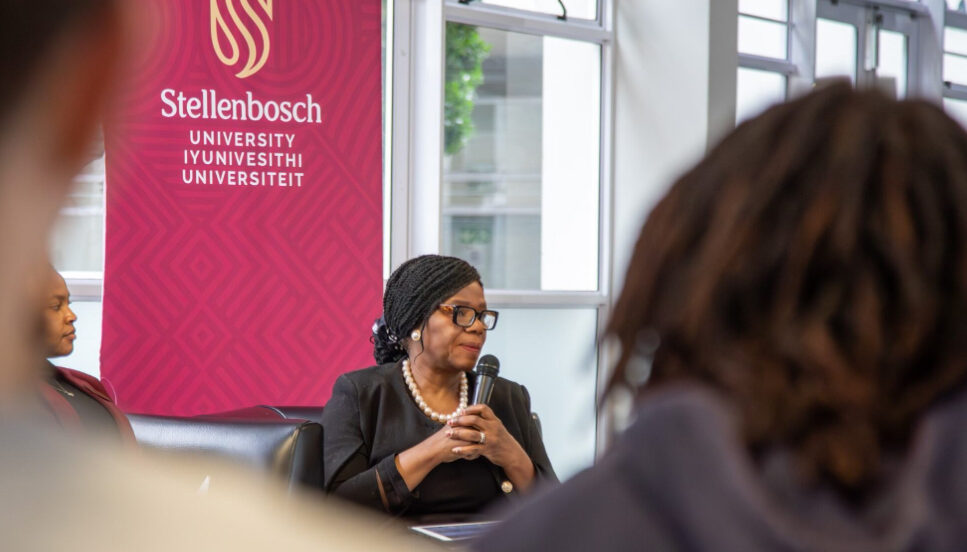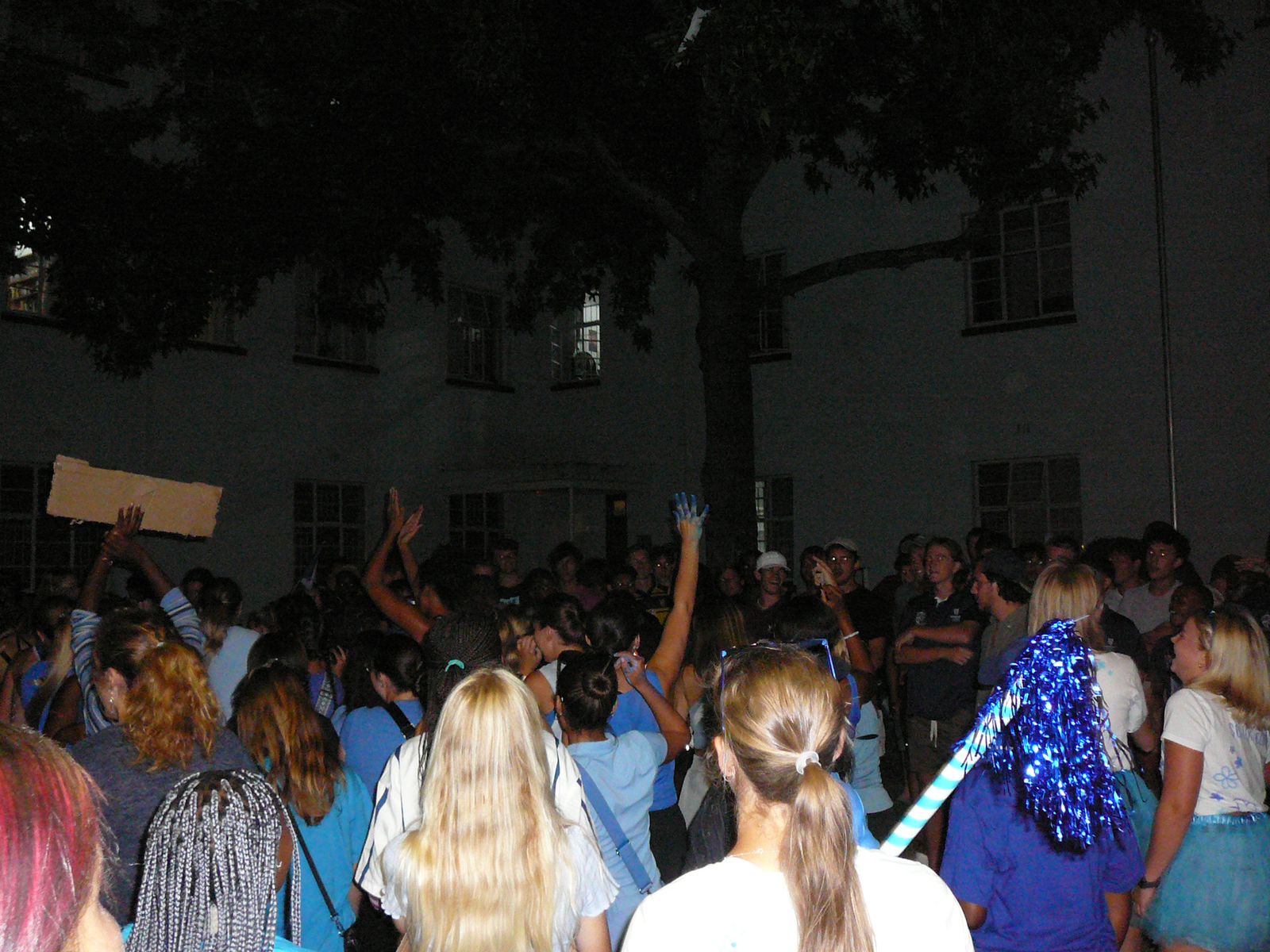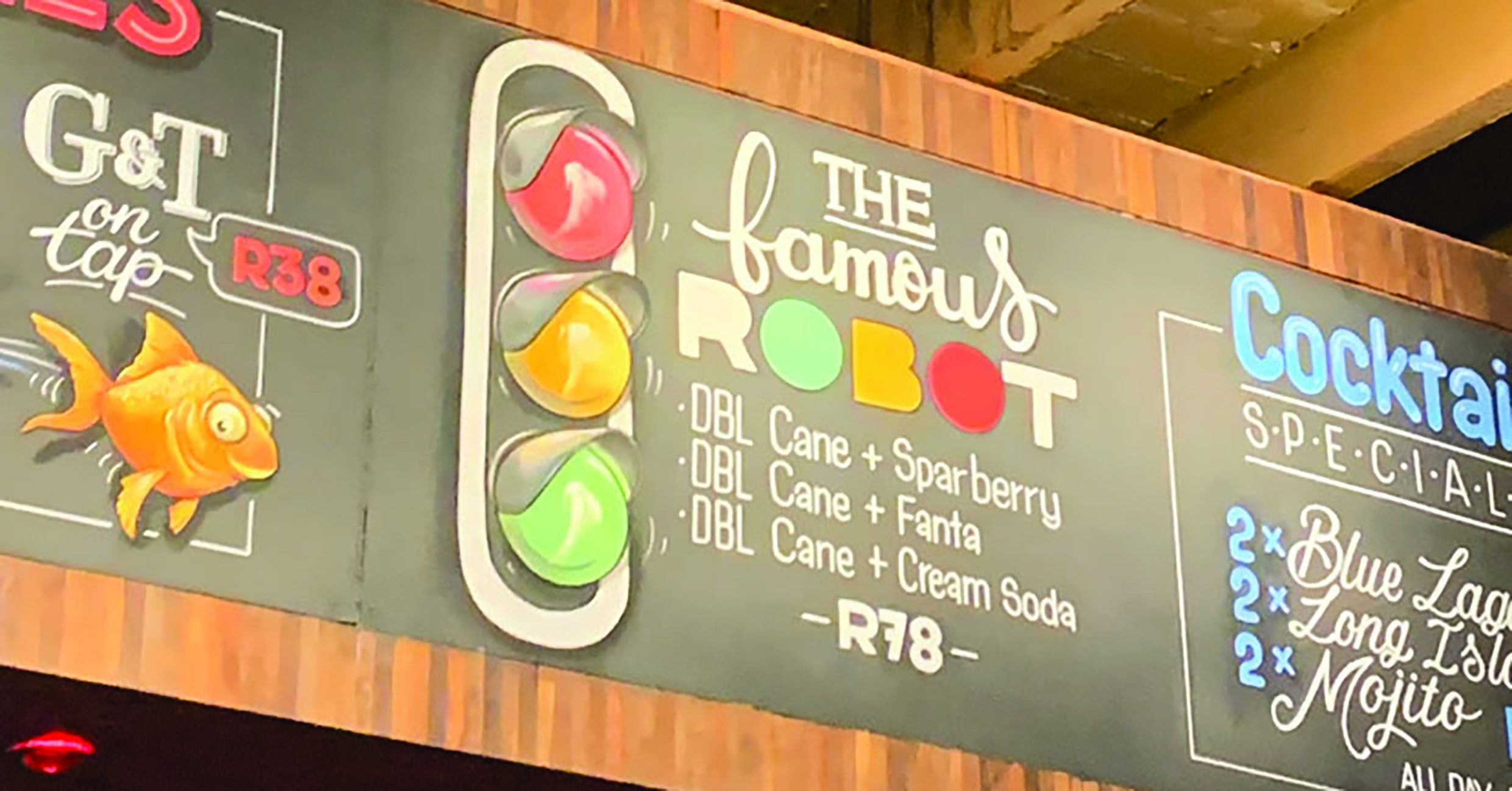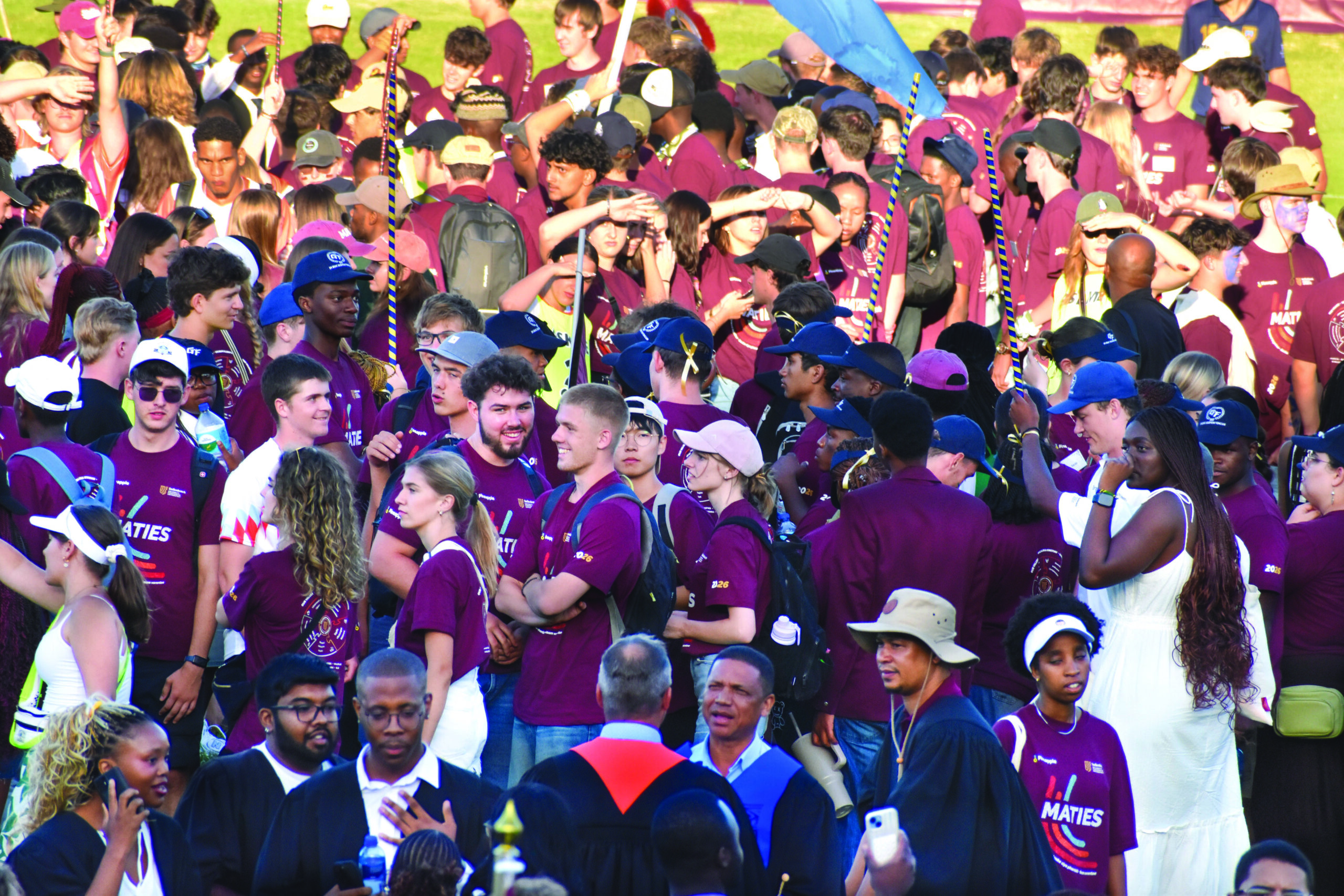
By Leah Falcon
“We must recognise that educational dignity begins when every student is fed, safe and housed.” With these words Ms Success Sibeku addressed the engaged audience gathered on 30 July at Stellenbosch University’s (SU) annual Social Justice Café.
The event opened the floor for a discussion on: ‘Student Accommodation, Hunger and Funding: Whose legal duty is it?’ With the 10-year anniversary of the #FeesMustFall movement this year, and the ongoing accommodation crisis in Stellenbosch, this question is particularly pertinent.
The Social Justice Café is an initiative held by SU’s Centre for Social Justice (CSJ), founded in 2016. The CSJ, headed by South Africa’s former Public Protector Prof. Thuli Madonsela, is grounded in South Africa’s Constitutional objectives and the United Nations’ Sustainable Development Goals, aiming to facilitate and promote research, teaching and social impact.
The panelists included Dr Rudi Buys, a Higher education consultant; Ms Success Sibeku, a House Committee Member and Kayalethu resident; Ms Vuyokazi Mafilika, an executive member of the National Student Financial Aid Scheme (NSFAS); and Ms Joy Hlatshwayo (LLB PG student), the transformation officer of the Judicial Society of SU (JVS).
Ms Hlatshwayo called for more transparency from SU regarding funding, especially in relation to accommodation. She highlighted the Supreme Court of Appeal case, South Point Properties v Mqulwana which found that student accommodation does not constitute a “home” in terms of the Constitution, thereby excluding students from legal protection from eviction. She expressed that the broader social impact of this judgement should be considered.
Ms Mafilika explained that since 2017 NSFAS has experienced greater strain after they took over the administration of nation-wide funding, moved from only providing loan schemes to offering the full cost of studies and compounded with the increase in applicants following Covid-19. Questions from the audience targeted the reason for NSFAS indiscriminately capping accommodation funds. Mafilika offered that the capping of student accommodation was aimed at addressing misuse and overclaiming of funds and that there is a differentiation between rural and non-rural locations. But with the continued experience of sub-standard accommodation by many NSFAS-funded students concrete responses to these challenges is becoming increasingly vital.
Dr Buys stressed perpetual student destitution of 27% of SA students and the realities of daily hunger. He elaborated, “There is a disconnect between everyone doing the right thing in their field and the impact they end up having… I do not think that the conversation is about legal duty or moral duty or even citizen duty anymore. I think it is about solving this disconnect.”
Ms Sibeku addressed the increase in private student accommodation businesses near SU. Soaring accommodation prices and the NSFAS cap has resulted in more students being pushed to the outskirts of Stellenbosch, often resulting in extra transport costs or threats to their safety walking to campus. Ms Sibeku entreated that, “Your privilege is a platform, not a blindfold. This crisis will be solved by choosing each other over convenience.”



